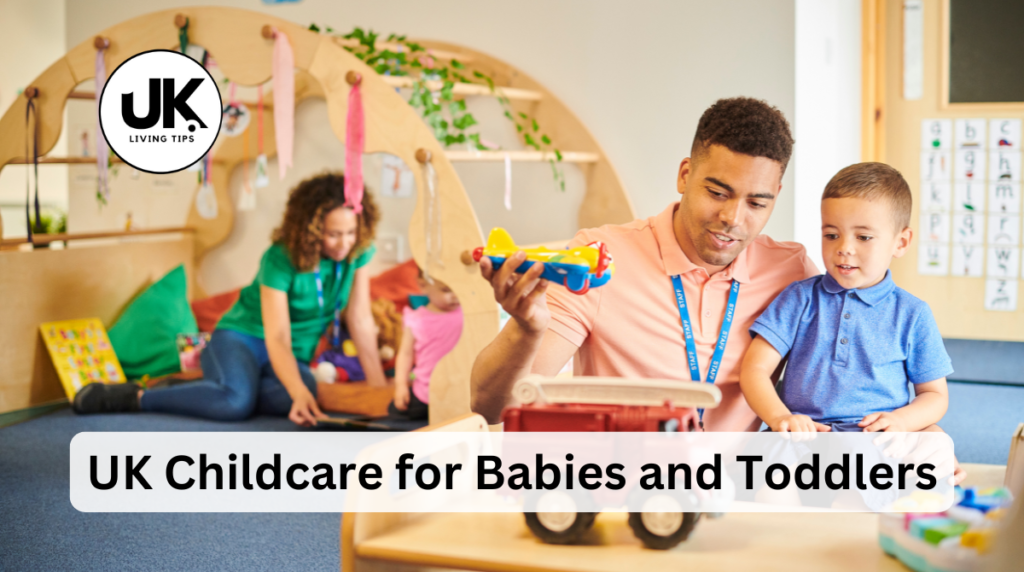Understanding the UK Childcare Landscape:
UK Childcare: The childcare landscape varies significantly from country to country. Understanding the local regulations, costs, and cultural nuances is essential. Before making any decisions, research the childcare options available in your new location.
Read also: childcare in the UK
Overview
Common UK Childcare Options:
- Nannies/Au Pairs: Hiring a nanny or au pair offers personalized care tailored to your child’s individual needs. This option often provides more flexibility but comes with higher costs and necessitates careful vetting and potentially formal employment contracts. Cultural differences in expectations and working practices should be carefully considered.
- Nurseries/Day cares: Nurseries and day cares provide structured care in a group setting. They generally have set hours and curricula, offering socialization opportunities for your child. The quality and regulatory oversight of these facilities vary widely, so thorough research and inspections are recommended. Look for establishments registered and inspected by local authorities.
- Childminders: Childminders offer childcare in their own homes, often providing a more intimate and family-like environment. They may cater to smaller groups of children, offering a more personalized approach. Again, local registration and inspection details should be checked.
- Family Members: If family members are available and willing, relying on family support can offer a comforting and familiar arrangement. However, this is not always a viable option for expats.
- Montessori Schools/Other Early Learning Programs: These schools provide a developmentally appropriate early learning experience often incorporating specialized learning approaches. These can be expensive but might offer a valuable early learning foundation.
Factors to Consider When Choosing UK Childcare:
- Location and Convenience: Choose childcare close to your home or workplace to minimize travel time and stress.
- Cost: Childcare costs vary dramatically. Factor this into your overall budget and consider government subsidies or tax breaks available in your new country.
- Accreditation and Regulations: Ensure the childcare provider is registered and complies with all relevant safety and educational regulations. Check for licenses, inspections, and safety certifications.
- Staff-to-Child Ratio: A lower staff-to-child ratio generally indicates better care and attention for your child.
- Curriculum and Activities: Consider the provider’s curriculum, learning approach, and daily activities. Are they aligned with your child’s developmental stage and learning preferences?
- Safety and Security: Assess the safety features of the facilities, including security systems, emergency procedures, and staff training.
- Language: If your child is not fluent in the local language, consider the language skills of the childcare providers and whether language immersion is appropriate for their age.
- Health and Safety: Inquire about hygiene practices, emergency procedures, and allergy management policies.
- Cultural Fit: Consider how the childcare setting aligns with your family’s values and cultural background.
Navigating the Application Process:
The application process varies between childcare providers. Expect to provide information about your child, including birth certificate, immunization records, and potentially medical information. You might need to provide references and complete registration forms. Waiting lists are common, particularly for popular nurseries, so apply well in advance.
Financial Considerations:
Childcare costs can be substantial, especially in expensive cities. Investigate government subsidies, tax breaks, or employer-sponsored childcare benefits available in your new country. Many countries offer financial support for families with young children, making childcare more affordable.
Cultural Differences:
Be aware that childcare practices and expectations can differ significantly from your home country. Research and understand the local norms before making any decisions.
Legal and Regulatory Aspects:
Familiarize yourself with the relevant laws and regulations governing childcare in your new country. This includes licensing requirements, safety standards, and parental rights.
FAQ:
Q: How early should I start looking for UK childcare? A: Start your search as early as possible, especially if you’re moving during peak seasons or to a popular city. Waiting lists can be long.
Q: What documents will I need? A: Generally, you’ll need your child’s birth certificate, immunization records, and potentially other documents depending on the childcare provider’s requirements.
Q: What is the average cost of childcare? A: Childcare costs vary greatly by location and type of care. Research the average costs in your area.
Q: How can I find reputable childcare providers? A: Check online reviews, ask for recommendations from other expats, and visit potential providers to assess the facilities and staff.
Q: What if my child gets sick? A: Most childcare providers have policies in place regarding illness. Check their policies and be prepared to keep your child home if they are unwell.
Q: What are my rights as a parent? A: Familiarize yourself with the childcare regulations in your new country to understand your rights and responsibilities.
Q: What language should the childcare providers speak? A: This depends on your child’s age and language abilities. If your child is very young, immersion in the local language may be beneficial. If your child isn’t yet fluent in the local language, make sure the providers can communicate with you effectively.
Q: Are there any government subsidies or financial assistance for childcare? A: Many countries offer financial support for childcare; check the relevant government websites in your new country.
Remember to thoroughly research and compare different childcare options before making a decision. Your child’s well-being and happiness should be your top priorities.



